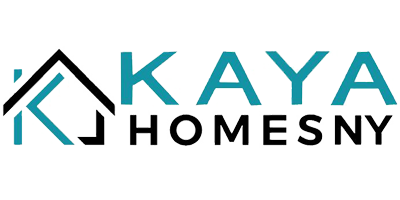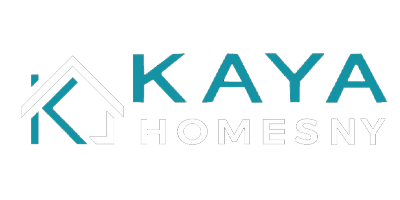Are you looking to dive into the real estate market but clueless on whether to sell or buy a house in Long Island for your personal living, or should you perhaps try your luck with an investment property? Well, you are not alone. Most people who try to attempt a home of their own face this dilemma, especially in today’s energetic housing market. The conventional wisdom is always to buy your primary residence, but increasingly people are investing in property before buying their first homes. With this guide, learn all you need to know about how to buy an investment property before your first home, with particular attention to the opportunities that await you in Long Island’s real estate market.
Investment Property vs First Home: Key Differences
When exploring options to buy or sell a house in Long Island, the important first step is to understand the critical differences between the investment property and primary residence. An investment property is a business and not personal comfort. Thus, all decisions are based upon the potential return it promises.
For example, location may be based on demand in the rental market rather than in your favorite neighborhood. The different communities on Long Island provide variance in investment potential: while areas such as Great Neck or Manhasset may have a higher purchase price, they actually provide a quite high rental return due to their proximity to New York City.
Primary residences are a matter of preference and style of living. In the purchase of a first home, school systems, commute times, and community amenities become more important than pure investment consideration.
Financially, these two types of properties differ immensely. Investment properties usually involve larger down payments, in the range of 20-25% of the purchase price, while primary residences can involve as little as 3.5% down through an FHA loan. Interest rates on investment properties are usually 0.5-0.75 percentage points higher than those on primary residences, reflecting the greater risk that lenders attach to investment properties.
Factors to Consider Before Buying an Investment Property
The decision to purchase an investment property requires careful consideration of multiple factors which include:
- Financial readiness should be defined by a good credit score of at least 680 or higher and not more than 36% debt-to-income ratio, with the new mortgage factored in. Long Island property taxes are normally high, so budgeting needs to be accurately set.
- Market Analysis: Research neighborhood trends, including historic property values, rental rates, and vacancy levels. Give more priority to areas like Rockville Centre, Garden City, and Huntington because of their steady demand and growth.
- Commuter appeal: Pursue properties within walking distance from the Long Island Rail Road station for their consistent interest from tenants who want ease of transportation.
- Risk Tolerance: Expect uncertainties like problems with tenants, market fluctuation, and other contingencies. Provide an emergency fund for property expenses alone.
Benefits of Buying an Investment Property First
Buying an investment property before your primary residence can bring a host of strategic advantages. One enormous advantage involves the potential to generate rental income, in particular, within Long Island’s robust rental market. It provides consistent cash flow that can help balance the expenses of mortgages, property taxes, and maintenance.
Other advantages of investment properties are that they tend to enhance your qualification for a mortgage, since lenders often take 75% of the rental income into consideration when determining your debt-to-income ratio. This better financial situation can make it easier to obtain a mortgage for a primary residence later on.
Another great advantage involves tax benefits: the mortgage interest, property taxes, and operating expenses-including depreciation-are all deductible, hence reducing taxable income and raising your total return on investment. Moreover, the regular mortgage payment helps build equity and contributes to fostering long-term wealth.
Of course, real estate experience is invaluable and first comes with the ownership of an investment property that teaches the ropes on how the process works regarding property ownership, tenant management, and maintenance that may be helpful whenever transitioning to a primary residence purchase.
Challenges of Owning an Investment Property
Owning an investment property on Long Island comes with a particular set of challenges. Property maintenance is one of the most crucial areas of concern, particularly with the unpredictable nature of the weather on Long Island. Being proactive by establishing a network of reliable contractors and maintaining an emergency fund is a prerequisite. The management of tenants requires meticulous screening of tenants, adherence to legal norms, and open communication.
A further important thing to be done is acquaintance with New York State landlord-tenant laws, which stipulate the security deposits, terms of the lease, and eviction protocols. The vacancy poses another series of challenges, as, even in the thriving rental market on Long Island, instances of occasional vacancies still do affect returns. These can be mitigated if one maintains a financial buffer for at least three months’ mortgage payments and expenses.
Lastly, there are also legal challenges since the regulations regarding real estate are complex. You must consult a real estate attorney who would simplify compliance and minimize risks, hence avoiding choppy waters that one can find oneself in while managing the property.
Tax Implications of Owning an Investment Property
Understanding tax implications will help you maximize your investment returns. An investment property allows a raft of tax benefits, from deductions on mortgage interest and property taxes to insurance and property management fees. The depreciation deduction allows one to write off the cost of the building over 27.5 years, providing a great tax benefit.
However, tax planning requires a great volume of bookkeeping records and professional advice. You must record incomes and expenses in as much detail as possible because the IRS monitors rental property deductions quite closely. Later on, when you sell the property, you’ll have to pay some capital gain taxes and possibly depreciation recapture. The proper tax professional with real estate investments expertise will assist you well in optimizing your tax position.
Financing Options for First-Time Investment
Financing an investment property involves knowing your options and understanding many of them. The most common is a conventional mortgage, which includes substantial down payments and excellent credit scores. Other investors make use of creative financing, including partnership arrangements or owner financing. House hacking involves the buying of a sectioned multi-unit property, living in one unit, and renting out the others. This can occasionally qualify for primary residence financing terms while generating rental income.
Long Island’s local banks and credit unions have portfolio loans, which involve less strict regulations compared to the national lender. Building a relationship with local banks and financial institutions usually always pays dividends to real estate investments to be made in the future. Similarly, one can also shop multiple lenders to understand the available terms and comprehend all the options available.
Steps to Buying an Investment Property
Investment buying requires systematic planning. Here is a step-to-guide on how to buy an investment property in Long Island.
- Get Pre-approved: Decide precisely how much you can invest by assessment of finances, in consideration that one may be called upon to pay a deposit, which equally ranges between 5% to 30% depending on loan types. Think about how to finance the deal, by conventional loans or HELOCs, among others, and get pre-approved for a mortgage so you wouldn’t be taken by surprise should such need arise.
- Clearly Defined Investment Goals: This could be a source of rent, property flipping, or for long-term appreciation. Clearly defined goals will, again, effectively guide decisions on the choice of property type and location.
- Research possible locations: Filter down areas demonstrating exceptionally high demand for rentals, along with very strong value development. Also, consider amenities such as local schools, transportation links, and demographics that would be appealing to target tenants.
- Property Selection: Selection of the property means that one has to look around for the properties within the chosen location through open houses, agents, or by going through the listings. Pay extra attention to the condition of the property and possibly the renovation needs.
- Due Diligence: Set up inspections that reveal structural problems, liens, and restrictions to confirm market conditions. Ensure that all three areas confirm a good investment decision.
- Negotiate an Offer and Close the Deal: Present a competitive offer per the analysis. Ensure working with attorneys to close. Review all documents and conditions to close smoothly.
The Nassau Real Estate Market: Timing Your Investment Property Purchase
The real estate market in Nassau presents property investors with great opportunities. A proper understanding of market cycles helps in timing your purchase effectively. Amidst values in the county generally appreciating over time, there are different growth patterns in separate neighborhoods. Research historical trends in both property values and rental rates.
Consider what infrastructure improvements may be in the works, or development projects planned, that could affect property value. Many times, areas in revitalization provide an opportunity for potential appreciation amongst other emerging opportunities that can be discerned by tracking local economic indicators and job market and population movement patterns.
Conclusion
In conclusion, buying your investment property before your first home possibly makes for a great strategy toward building wealth with real estate. This presents an opportunity to earn rental income, take advantage of tax benefit deductions, and appreciate the value of the property, as all these contribute to a solid base for financial growth. Success only calls for careful planning, a tight fiscal foundation, and good insight into the Long Island market. While it may bring along a few challenges, such as property management and market fluctuations, the long-term rewards make it a consideration worth entertaining for those ready to take the leap into real estate investing.
Frequently Asked Questions
Q: How much down payment do I need for an investment property?
A: For investment properties in Long Island, you need a down payment amounting to 20-25% of the purchase price. That means for a property of $500,000, you should be prepared to have $100,000-$125,000 available for your down payment. Of course, some investors use creative financing strategies, like owner financing or partnerships, though traditional lenders rarely, if ever, deviate from these minimums.
Q: Can I use rental income to qualify in the future for a primary home mortgage?
A: Yes, established rental income may help qualify for a primary home mortgage. Lenders will need a two-year history of ownership from rental property and use about 75% of the rental revenues when calculating your debt-to-income ratio. You will want to document this income through tax returns and maintain a good payment history on your investment property mortgage.
Q: Should I manage the property myself, or should I hire a property manager?
A: It depends on your availability of time, native knowledge, and management skills. Professional property managers charge 8-10% of monthly rent in Long Island, but give you invaluable services, such as tenant screening, maintenance, and being there if emergencies strike. If one has a full-time job or lives far from his investment property, professional management may be worth paying for.










 by Mottek Group
by Mottek Group